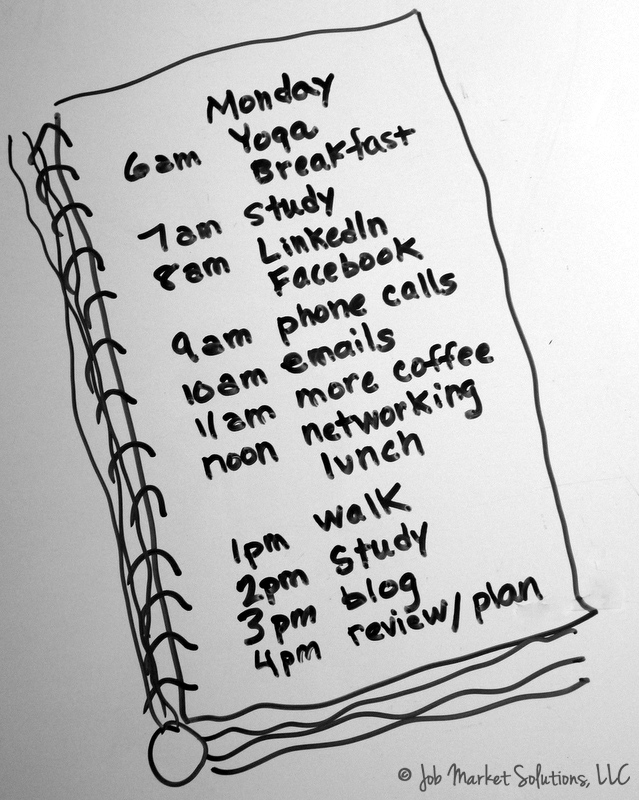 If one of your goals for 2015 is to advance your career with a better job, let’s get started!
If one of your goals for 2015 is to advance your career with a better job, let’s get started!
For most people, just the thought of looking for work – the research, the applications, the interviews, the networking – seems daunting. But if you break the process into manageable steps, you’ll feel in control, be able to track your efforts, and have better “luck” finding that dream job.
Here is my list of the five most important steps to get a new job.
1. Know what you want.
Examine your reasons for dissatisfaction with your present situation.
Decide if your next job will be a step up the ladder, a horizontal move, or a change of careers.
Be certain that you have the current qualifications to compete for a better job. Study the job market for your field and then write your ideal job description based on your own research of what’s available and what skills you have. Make a list of companies or people you want to work for.
2. Organize your search.
Plan your self-marketing strategy.
Decide how you will brand yourself.
Decide if you are willing to relocate and what your base salary needs to be.
Decide which social media outlets will be most helpful and exactly how you will use each one. Review your social and business networks and how they can be expanded and nurtured. Consider every trade show, conference, user group, and industry-specific blog or website as a way to grow your network.
Update your resume.
Plan to take a class or otherwise upgrade your credentials or experience. Write and rehearse your elevator pitch. Work on your brag book. Design and print new business cards.
3. Create a daily schedule.
The more time and energy you devote to your proactive search, and the more aggressively you network, the faster your search will move along.
If you are not currently working, commit to a minimum of 40 hours each week to actively pursuing a new job. If you are currently employed, plan on spending 15 to 20 hours.
Keep regular working hours so that you are available for calls and interviews. Design a checklist for daily activities, plan each day around your immediate goals, and track your progress. That means keeping accurate records of phone calls, interviews, job openings, people you’ve met, and companies you’re interested in.
Don’t forget to include time for relaxation and recreation, especially activities that build your confidence.
4. Set aside a workspace.
Finding a job is a job, so designate a specific area for actively conducting your search.
No matter what size it is, your “office” should be a clean and organized space away from distractions and interruptions. Having surroundings like this keeps your mind focused and running in a professional vein.
It doesn’t hurt to have motivational quotes visible to you where you work because there will be days when your enthusiasm lags, or worries take center stage. Make it an uplifting space where you want to spend time.
5. Put together a team.
Don’t go it alone. Build your own support group from friends and family.
The more people who know that you are looking for work, the better (unless you need to stay under the radar of your present employer).
Join a job club. Use the services offered by your city, county or state employment office. Talk to two or three recruiters. Contact your college alumni association and any professional groups where you are a member. Participate in online networking sites.
You may want to hire a career coach, or at least be reading books or taking a course on career advancement.
Hire me to write your resume. Your resume needs to be strategically focused, visually appealing, and absolutely error-free if it’s going to make it to the top of the stack and land you that all-important interview. I know how to handle all kinds of resume conundrums: if you’ve been fired or layed off, if your work history looks sketchy, if you’re over 55, if you’ve been home with kids, if you’ve been self-employed for years, if you’re switching careers.
Find an accountability partner – one person who will support, encourage and motivate you. This could be a friend, another job seeker or a counselor, someone who will be objective with you even when it calls for criticism, preferably not your spouse or romantic partner.
The average American worker changes jobs every four years. In other words, you could have 10 or more jobs over the course of your career and still have a normal work history. Yet, most people have never been taught how to find a job. That’s why I wanted to publish my five step approach. May it help you find a job that makes you smile every day of the New Year!